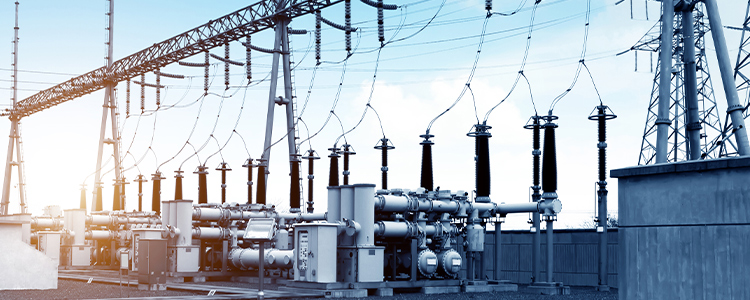- All
- Product Name
- Product Keyword
- Product Model
- Product Summary
- Product Description
- Multi Field Search


This series of switchgear is constructed with a fundamental frame made from partially welded pipe assemblies. The cabinet's structural components are connected using screws to create the basic frame, with doors, panels, partitions, drawers, mounting brackets, busbars, and electrical components added to complete the fully assembled switchgear.
GCK (L)
SHENGTE
| Availability: | |
|---|---|
| Quantity: | |
Robust Frame Construction:
· The frame is fabricated from shaped steel, welded to ensure superior strength and rigidity.
· Cabinet frame and component installation apertures conform to the 20mm module system standard.
Durable Structural Elements:
· Internal structural components are galvanized for enhanced durability.
· External components, including the frame and door locks, are phosphatized and coated with electrostatic epoxy powder for a robust finish.
Power Distribution Center Design:
· The incoming line cabinet features a horizontal busbar area at the top and a circuit breaker chamber at the bottom.
· Circuit breakers can be equipped with China-manufactured ME series, CW1 series, or various international models such as ABB's E series or Schneider's M series, based on customer requirements.
Feeder Cabinet Configuration:
· The feeder cabinet structure mirrors that of the incoming line cabinet.
· Cabinets rated for feeder currents between 630A and 2000A can accommodate two vertically arranged circuits.
Versatile Cabinet Design:
· Cabinets for capacitor compensation, metering, etc., have the same appearance and horizontal busbar positions as drawer-type cabinets, allowing for seamless integration and simultaneous use.
Advanced Busbar System:
· The busbars employ a three-phase five-wire configuration.
· Cabinets with horizontal busbar currents of 1250A and below use single busbars, while those exceeding 1250A use double busbars.
· Horizontal busbars between cabinets are connected using connecting blocks.
· Vertical busbars are enclosed with galvanized plates and transparent organic glass plates, featuring internal partitions to contain arc diffusion.
· The neutral busbar is located at the top front section of the cabinet.
· The protective busbar is situated at the bottom of the cabinet, ensuring continuous grounding by connecting to the cabinet’s partitions and doors.
Efficient Ventilation:
· Natural ventilation windows are integrated at the bottom and top sections of the switchgear to facilitate airflow without compromising the enclosure's protection level.
High Protection Standards:
· The cabinet's enclosure protection level meets IP40 standards.
Robust Frame Construction:
· The frame is fabricated from shaped steel, welded to ensure superior strength and rigidity.
· Cabinet frame and component installation apertures conform to the 20mm module system standard.
Durable Structural Elements:
· Internal structural components are galvanized for enhanced durability.
· External components, including the frame and door locks, are phosphatized and coated with electrostatic epoxy powder for a robust finish.
Power Distribution Center Design:
· The incoming line cabinet features a horizontal busbar area at the top and a circuit breaker chamber at the bottom.
· Circuit breakers can be equipped with China-manufactured ME series, CW1 series, or various international models such as ABB's E series or Schneider's M series, based on customer requirements.
Feeder Cabinet Configuration:
· The feeder cabinet structure mirrors that of the incoming line cabinet.
· Cabinets rated for feeder currents between 630A and 2000A can accommodate two vertically arranged circuits.
Versatile Cabinet Design:
· Cabinets for capacitor compensation, metering, etc., have the same appearance and horizontal busbar positions as drawer-type cabinets, allowing for seamless integration and simultaneous use.
Advanced Busbar System:
· The busbars employ a three-phase five-wire configuration.
· Cabinets with horizontal busbar currents of 1250A and below use single busbars, while those exceeding 1250A use double busbars.
· Horizontal busbars between cabinets are connected using connecting blocks.
· Vertical busbars are enclosed with galvanized plates and transparent organic glass plates, featuring internal partitions to contain arc diffusion.
· The neutral busbar is located at the top front section of the cabinet.
· The protective busbar is situated at the bottom of the cabinet, ensuring continuous grounding by connecting to the cabinet’s partitions and doors.
Efficient Ventilation:
· Natural ventilation windows are integrated at the bottom and top sections of the switchgear to facilitate airflow without compromising the enclosure's protection level.
High Protection Standards:
· The cabinet's enclosure protection level meets IP40 standards.